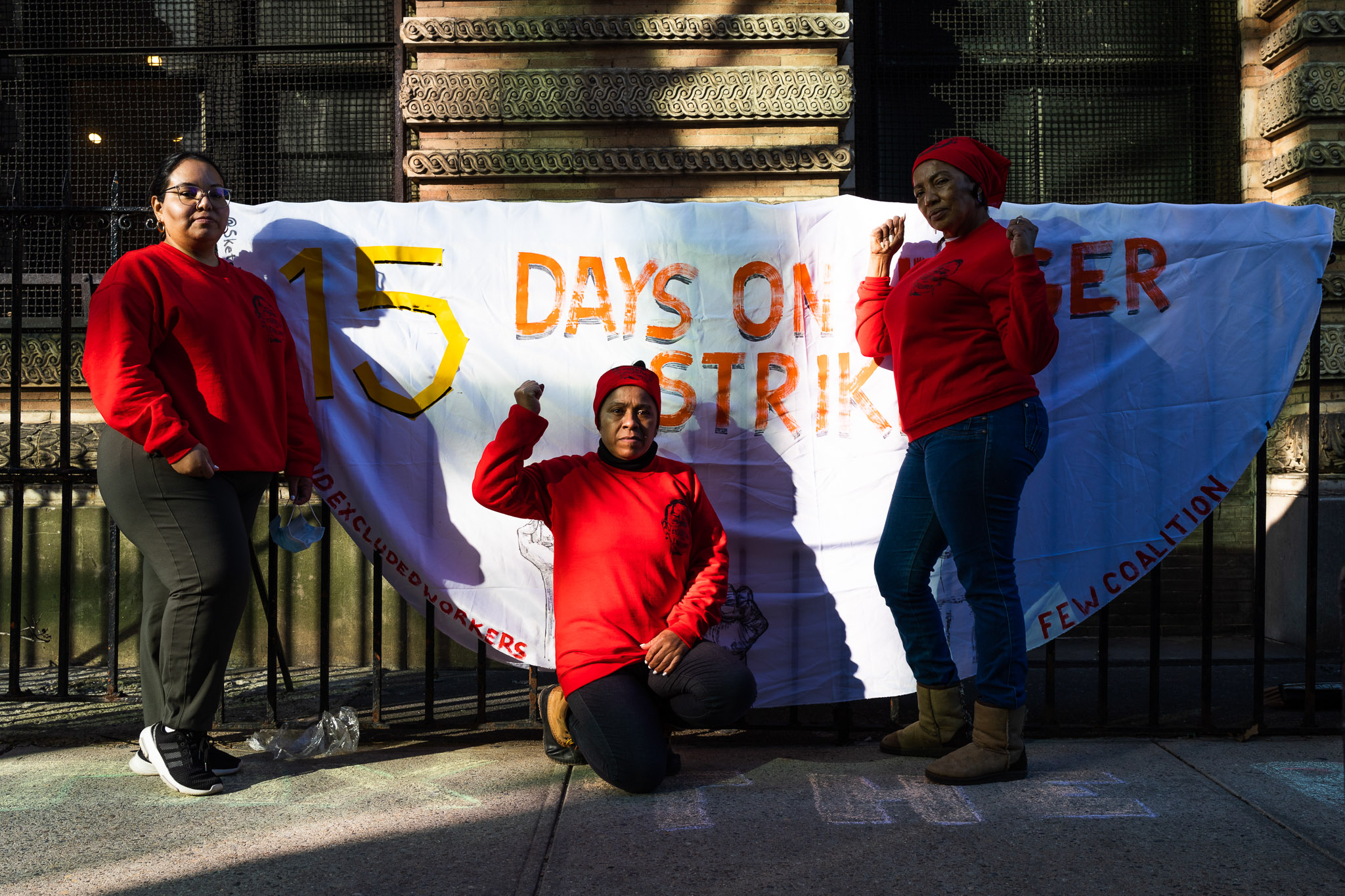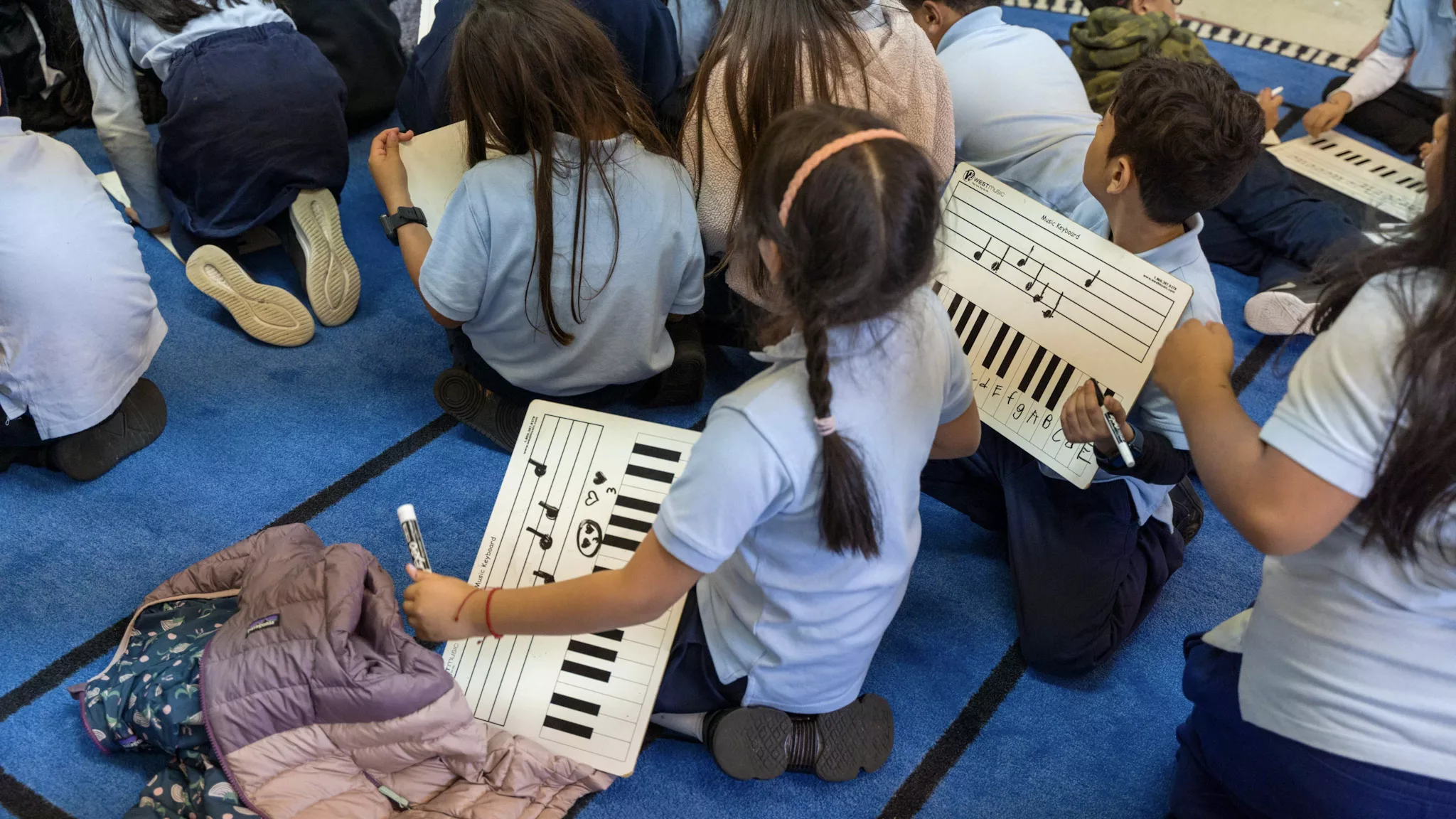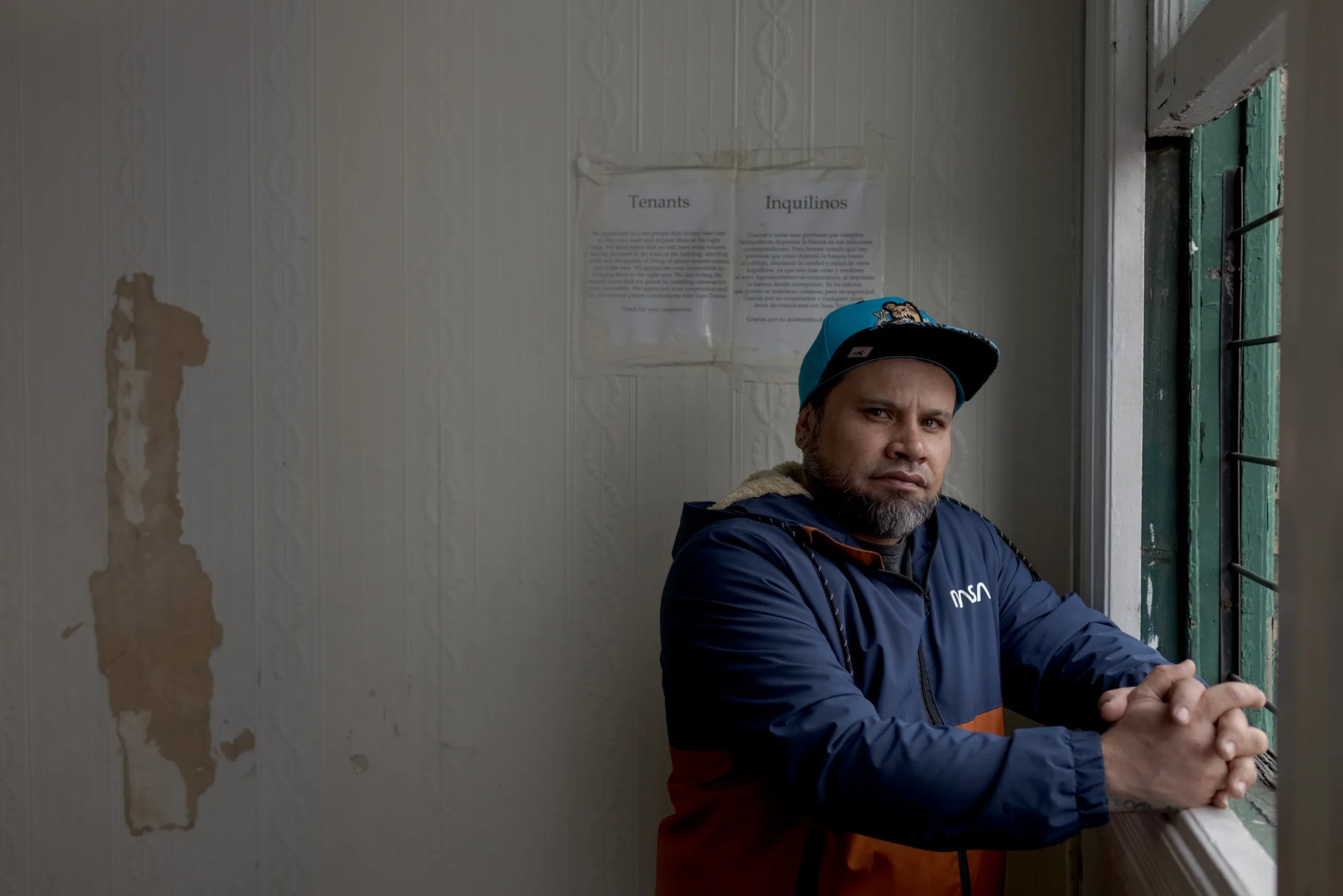Three immigrant women huddle on lawn chairs surrounding space heaters in the middle of Thompson Street across from Washington Square Park. It’s been 11 days since any of them have eaten and a year since they’ve been able to work enough to sustain their families.
They are part of a group of excluded workers taking part in a hunger strike to push the state legislature to pass a fund for undocumented workers and New Yorkers recently released from incarceration who have not been eligible for state and federal aid during the pandemic.
“We are counting on the state to deliver much needed, desperately needed relief this budget season, because our people can’t wait,” said Bianca Guerrero, campaign coordinator for the Fund Excluded Workers campaign responsible for the strike.
The strike closed its 15th day on March 30, two days from the state budget’s April 1 due date.
Also read: A Strike That Essential Workers at Hunts Point Produce Market Won
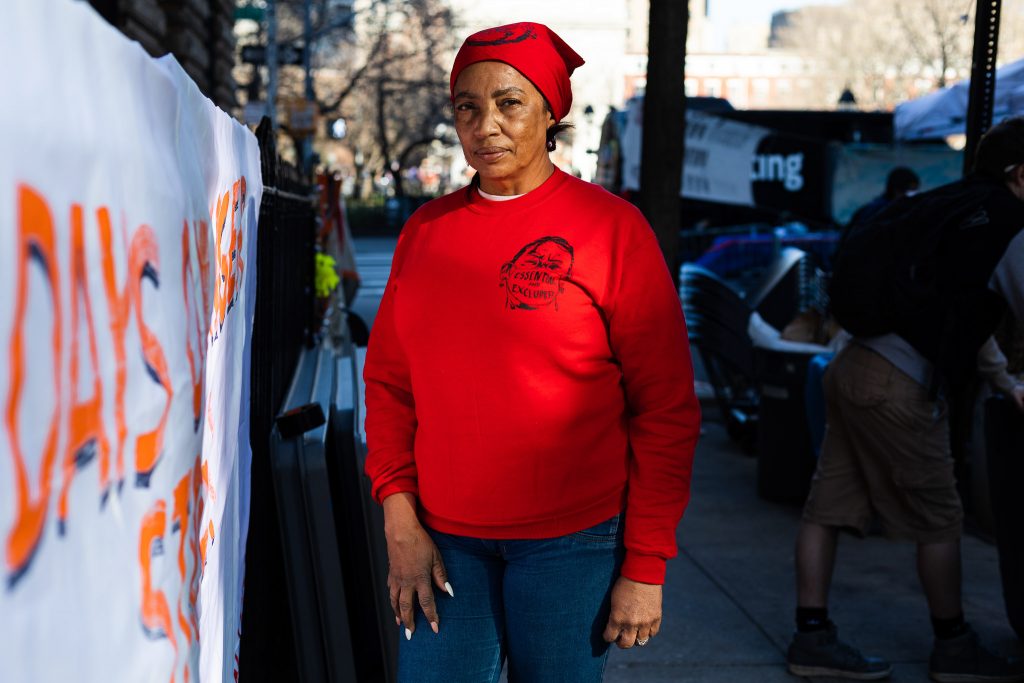
The excluded worker fund act would send flat-rate cash payments to families and provide retroactive pay from April 2020 through the end of the declared emergency.
Advocates say the $3.5 billion fund could be created by ending tax breaks for the richest New Yorkers, part of a package of bills before the legislature.
Maria Isabel Sierra, 54, lost a majority of her street vending income when much of her clients began working remotely or lost their jobs.
“I’ve been here 11 days and I’m going to be here as long as my body endures,” she said. “They have put us aside. For not having papers we don’t have rights.”
Also read: Immigrant Delivery Workers Organize To Fight Rampant E-Bike Theft
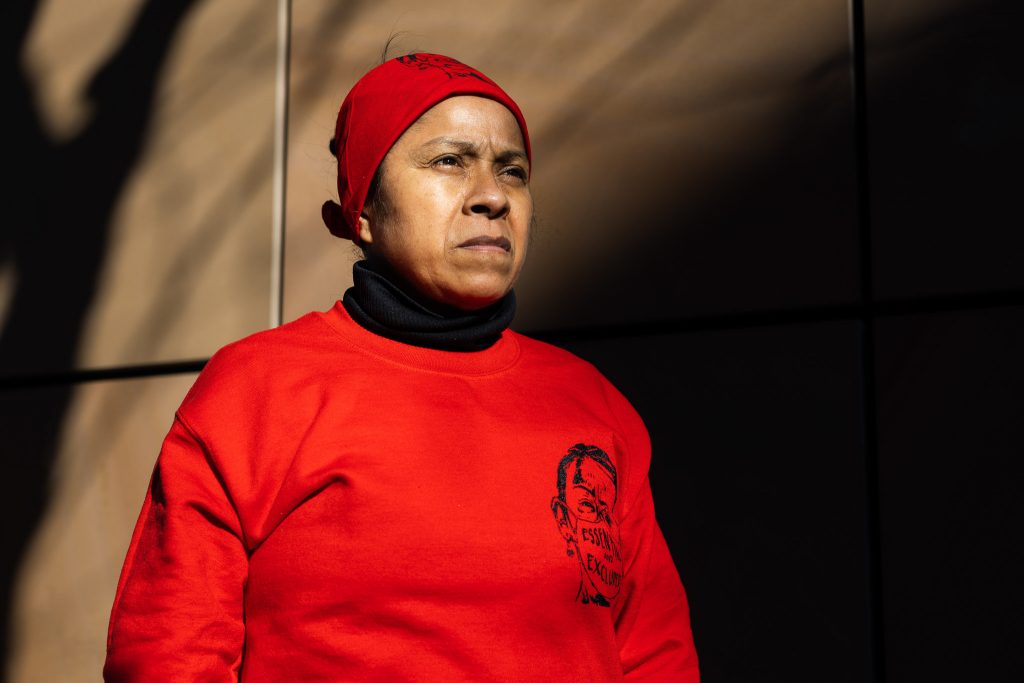
Guerrero said she is optimistic the state will provide aid to excluded workers, but she worries provisions may be added to the bill requiring financial proof to receive aid, creating a barrier for undocumented and cash workers.
“How, being a street vendor, am I going to show what I earn?” Sierra asked. “I can’t verify … I don’t have a check where they tell me how much I earned in a year.”
Santa Arias is 56 and is one of the immigrant women taking part of the strike. She could earn up to $1,000 a week cleaning four apartments a day before the pandemic. Since she lost her job one year ago, she owes more than $15,000 in rent.
And Veronica Leal, a 35-year-old domestic worker, currently only works up to once a week.
Also read: Jing Fong’s Workers are Fighting to Keep Their Chinatown Restaurant Alive
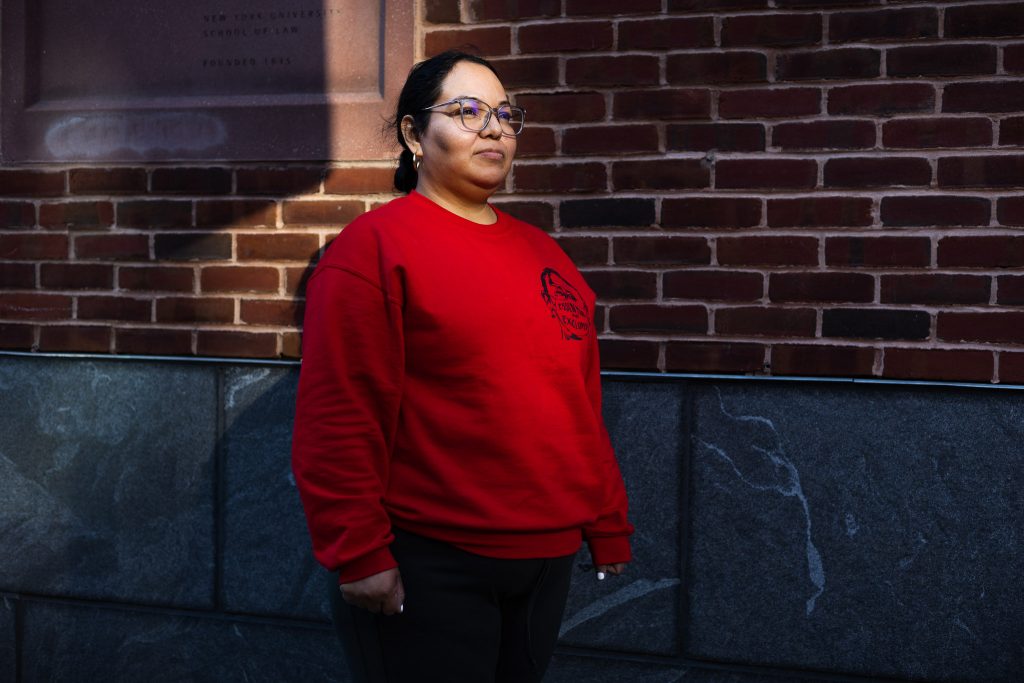
“We are here because we have suffered enough,” Leal said. “We have already endured a year of hunger. What difference does it make to endure two or three weeks more with the purpose of getting something that we deserve.”
The immigrant women are prepared to continue the strike after the legislative session if the bill does not pass.
On the difficulty of keeping up the fast, Leal said, “Our stomachs ask for food, but our hearts ask for justice.”
